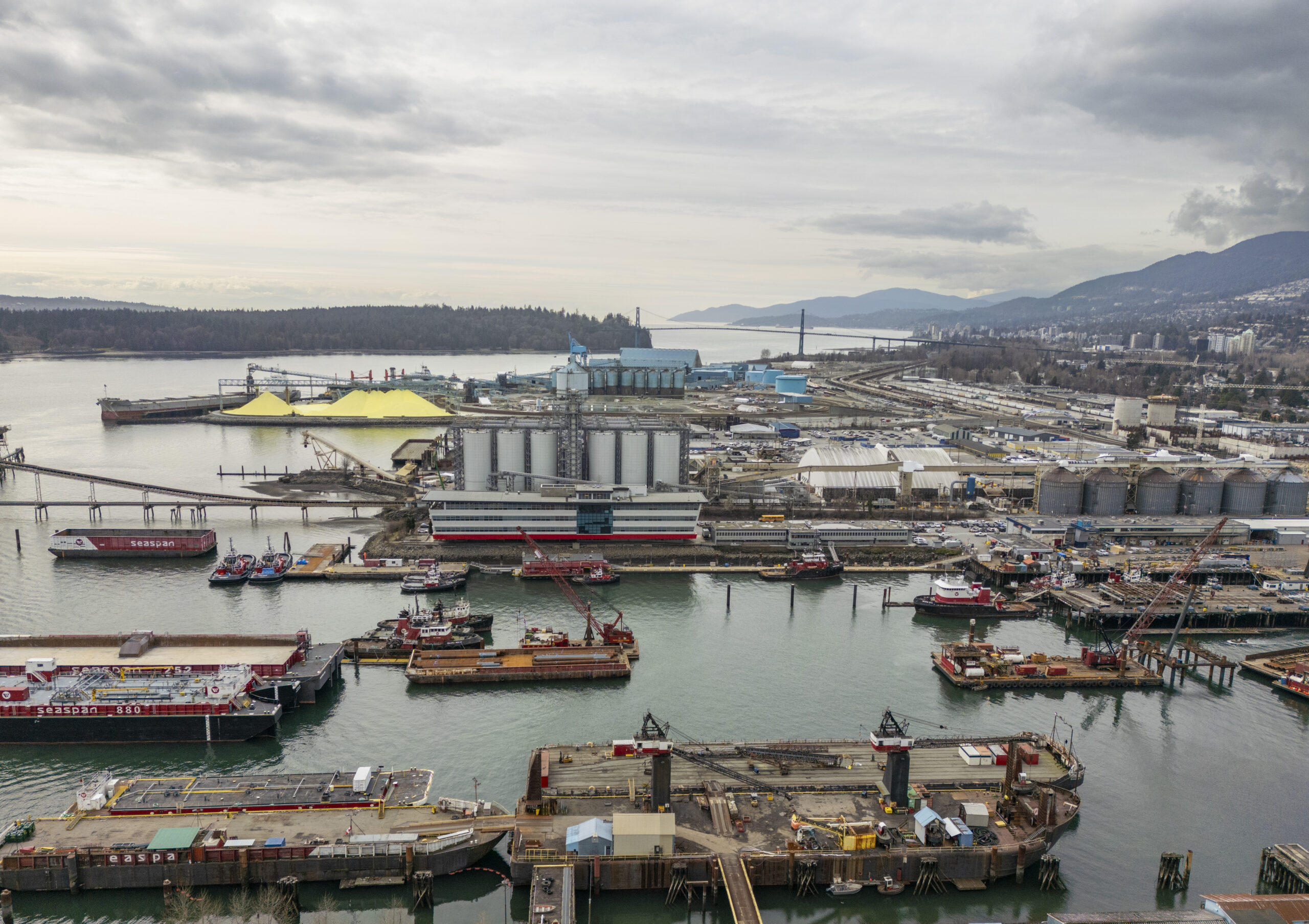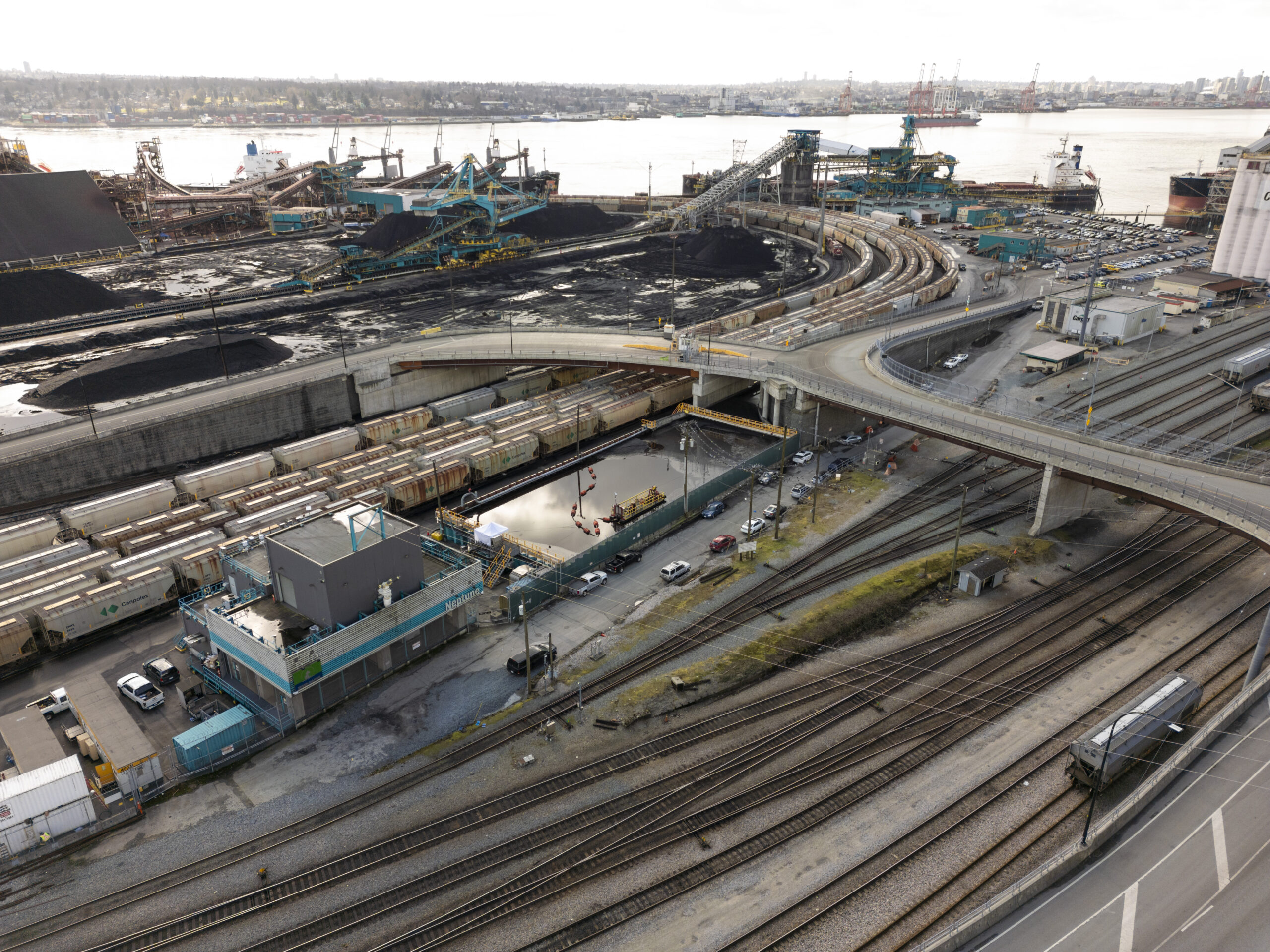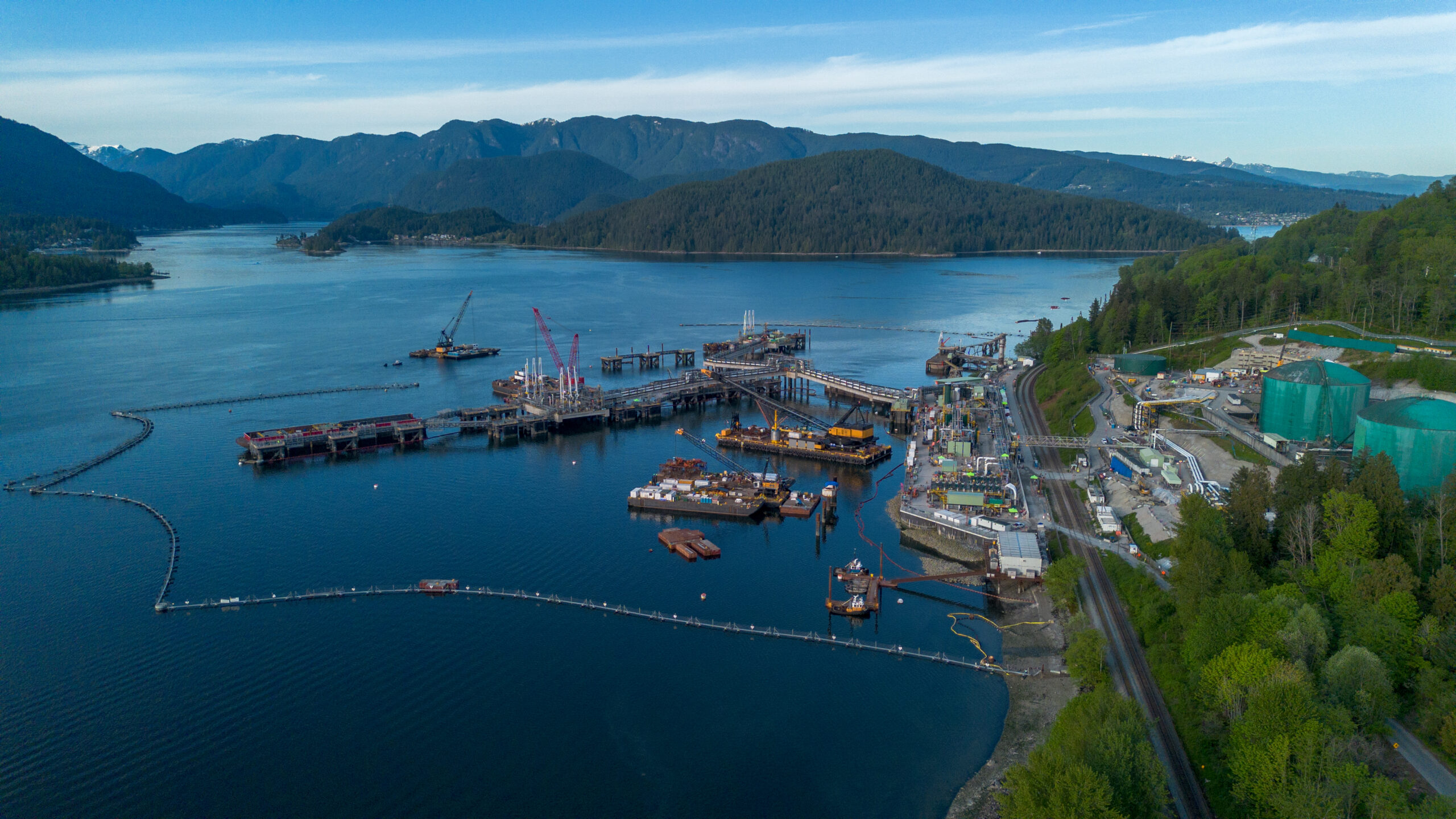
Court halts tailings increase as First Nation challenges B.C.’s decision to greenlight it
Court sides with Xatśūll First Nation, temporarily halting Mount Polley mine waste expansion
The inlet that forms Vancouver’s northern, watery border has changed dramatically over the past 200 years.
Burrard Inlet, called səl̓ilw̓ət in the hən̓q̓əmin̓əm̓ language, was once home to rich estuaries and beaches abundant with wild foods that nourished Indigenous Peoples. Today it is a hub for global trade, surrounded by dense urban and industrial development.
Every day, the inlet is used as a dumping ground. Rainstorms wash in pollutants from city streets and untreated sewage from the region’s outdated sewer systems, while the B.C. government authorizes industrial facilities to release contaminated water directly into the sea.
Seven hundred different contaminants were detected in Burrard Inlet between 1971 and 2016, according to a Tsleil-Waututh Nation report. At least 24 were found at levels that make it risky to consume food harvested from the inlet.
The Narwhal dug into the sources of pollution in Burrard Inlet and the authorities that allow them to continue, in a sprawling portrait of this critical waterway. Here are five takeaways from that investigation.
The B.C. government authorizes a range of facilities — from petroleum processors to chemical manufacturers — to release wastewater into Burrard Inlet. While some wastewater undergoes a degree of treatment, companies are not required to remove all contaminants.
One provincial water quality objective for Burrard Inlet states there should be no oil and grease present in the inlet. Yet, through wastewater authorizations, the province has given four companies a green light to release oil and grease into the sea.
Oil giant Suncor Energy, bulk shipper PKM Canada Terminals, fuel supplier Parkland Refining and food waste recycler West Coast Reduction are together authorized to release up to 69,575 cubic metres of wastewater into Burrard Inlet in a single day. That wastewater is allowed to contain as much as 629 kilograms — roughly 100 bowling balls — of oil and grease.

The Narwhal reached out to those companies and only West Coast Reduction responded. That company’s “wastewater is treated on site and managed to the highest standards,” Jared Girman, West Coast Reduction’s director of government relations and strategic initiatives, said in a statement.
West Coast Reduction supports the work being done by the Burrard Inlet water quality technical working group and “will continue to participate in this iterative process,” Girman added.
In March, The Narwhal received a copy of a leaked video from a source who required confidentiality to avoid retribution. The video shows coal spilling off the side of a ship as it’s being loaded at Neptune Terminals.
Neptune Terminals did not report the incident, which took place last November. But after The Narwhal inquired about the spill, B.C.’s Ministry of Environment and Climate Change Strategy asked the company for a copy of the full video.

According to the ministry, the video shows “an accidental release.” The majority of the coal remained on the vessel and the pier, a ministry spokesperson said in a statement to The Narwhal, noting “a minimal amount of coal may have entered into the marine environment.” Less than 100 kilograms of coal were estimated to have been spilled.
According to B.C.’s spill reporting regulation, coal spills on land larger than 200 kilograms or 200 litres — and any amount of coal spilled into water — must be reported to the province.
In a statement to The Narwhal, Lisa Dooling, director of people and community at Neptune Terminals, said after meeting with provincial environment staff the company determined the spill should have been reported. “Neptune continues to be committed to strong environmental practices, and to reporting future spills as required by the regulations,” she said.
The incident raises broader questions about how often spills or leaks occur and how often they go unreported.
A review of publicly available records shows provincial staff are not regularly inspecting facilities flanking Burrard Inlet to assess compliance with wastewater authorizations.
While some facilities were inspected several times between 2017 and 2023, 10 facilities, including Neptune Terminals, were each inspected just once, according to the province’s natural resource compliance and enforcement database.

Inspection reports detailed a number of infractions. For instance, Trans Mountain Corporation was recently issued a warning letter for exceeding hexavalent chromium limits on more than 40 occasions between 2021 and 2023. Hexavalent chromium can cause organ damage in fish and other marine animals. It’s also the carcinogen at the centre of the Erin Brokovich story.
Trans Mountain Corporation did not directly address The Narwhal’s questions about its exceedances. In a statement, a spokesperson said, “Trans Mountain manages water onsite according to permit requirements, which includes the use of water treatment where required to ensure compliance with all permits and regulations.” The statement added that the company also complies with all reporting requirements.
The contamination has taken a severe toll. The inlet has been closed to shellfish harvesting since 1972 for public health reasons. Fecal coliform levels — bacteria from human and animal excrement — alone make it risky to harvest clams but several other contaminants, from heavy metals to industrial chemicals, are also cause for concern.
The pollution has directly impacted Tsleil-Waututh Nation’s ability to practice its right to harvest food from the inlet.
Today, the nation can only harvest clams from one less-developed area of the inlet on rare occasions and after diligent testing.
Tsleil-Waututh Nation is intent on restoring Burrard Inlet. In a key step, the nation worked closely with the provincial government to develop and jointly approve new, more stringent water quality objectives. If met, they could set the stage for Tsleil-Waututh people to safely harvest seafood from the inlet once again.
Get the inside scoop on The Narwhal’s environment and climate reporting by signing up for our free newsletter. On a warm September evening nearly 15...
Continue reading
Court sides with Xatśūll First Nation, temporarily halting Mount Polley mine waste expansion

Break out the champagne: Emma’s storied life and leadership in journalism has earned her the...

How can we limit damage from disasters like the 2024 Toronto floods? In this explainer...
